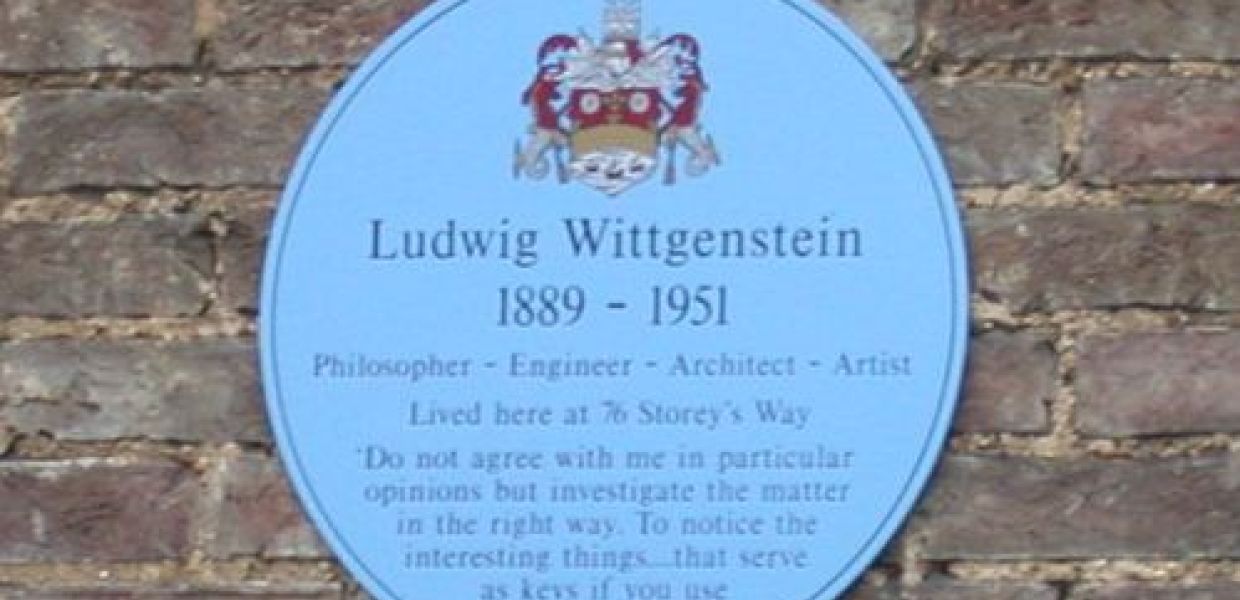DM2E to start work on Wittgenstein's Brown Book

As part of the Digitised Manuscripts to Europeana (DM2E) project, a group of scholars will begin working on Ludwig Wittgenstein's Brown Book in 2013. This document will be made available to Europeana by the Wittgenstein Archives at the University of Bergen (WAB).
Ludwig Josef Johann Wittgenstein (26 April 1889 – 29 April 1951) was an Austrian-British philosopher who worked primarily in logic, the philosophy of mathematics, the philosophy of mind, and the philosophy of language. In 1999, his posthumously published Philosophical Investigations (1953) was ranked as the most important book of 20th-century philosophy by the Baruch Poll, standing out as '...the one crossover masterpiece in twentieth-century philosophy, appealing across diverse specialisations and philosophical orientations'.

Blue plaque commemorating Ludwig Wittgenstein in Cambridge, from 'Notice the interesting things' (Keith Edkins) / CC BY-SA 2.0
In 2009, WAB created the online platform Wittgenstein Source (1) which gives open access to 5,000 pages of manuscripts and typescripts from the Wittgenstein nachlass, including the Brown Book corpus. The Brown Book was dictated by Wittgenstein to students in Cambridge in 1934-35 as a summary of his philosophy at that time. One aspect of the book is the introduction of 'language games' which shed light on the complexity of our language. The Brown Book was revised several times; Wittgensteinsource includes both the typewritten dictation and the last revision in Wittgenstein's own hand, which led to the Philosophical Investigations.
A group of scholars will gather around Wittgenstein Source in order to address their questions to the Brown Book. In order to achieve this, they will make use of the Pundit platform, which is being developed within the DM2E project by the Italian company Net7. The platform allows scholars to access the Brown Book easily and to create semantic annotations of particular relevance. Through the platform, they will also be able to interact and comment on each other's views and questions.
WAB will provide the texts as well as an ontology which can be used as the backbone for scholarly annotation and interaction on these texts.(2) This ontology will include names for the single texts (on a remarks level), the persons and works referred to, text-genetical relations, but also terms for subject entries, and, moreover, properties which allow scholars to express argumentative relations between single annotation statements.
The Wittgenstein pilot has an important experimental aspect as it will demonstrate to what extent humanities scholars are willing to migrate research and argumentation activities to a digital environment, and highlight the challenges and limitations they experience as well as the new opportunities this kind of working makes available to them.
To keep up with this project, follow DM2E's blog.
Notes
(1) 2009 A. Pichler, in collaboration with H.W. Krüger, D.C.P. Smith, T.M. Bruvik, V. Olstad, and A. Lindebjerg (eds.): Wittgenstein Source Bergen Text and Facsimile Edition. In: Wittgenstein Source. (N) Bergen: WAB, Wittgenstein Source. http://wittgensteinsource.org/
(2) 2012 A. Pichler & A. Zöllner-Weber: Towards Wittgenstein on the Semantic Web. In: Digital Humanities 2012 Conference Abstracts. pp. 318-321. (D) Hamburg University Press. http://www.dh2012.uni-hamburg.de/conference/programme/abstracts/towards-wittgenstein-on-the-semantic-web/
